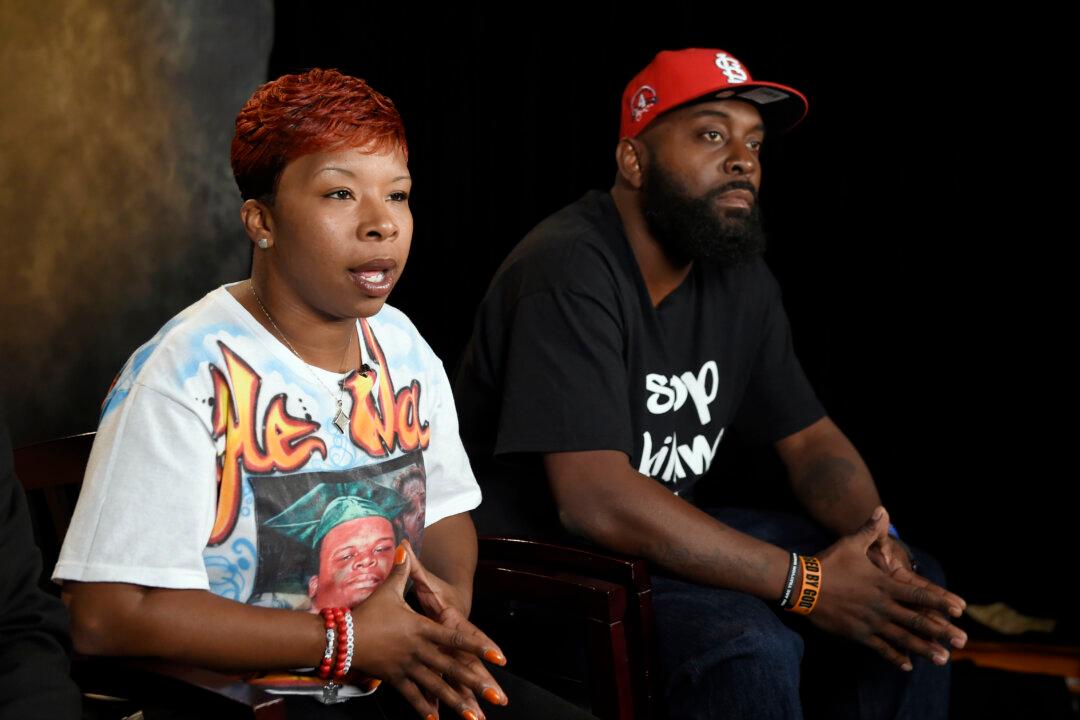KANSAS CITY, Mo.—Defense attorneys in the wrongful-death lawsuit by Michael Brown’s parents cite recent ambushes of police in Texas and Louisiana among reasons against expanding who can see sensitive grand jury details related to Brown’s 2014 death in Ferguson.
A St. Louis federal judge agreed in June to let no more than two attorneys for the defense and each of Brown’s parents see testimony and the names of witnesses from proceedings involving a St. Louis County grand jury that investigated the Aug. 9, 2014, fatal shooting of Michael Brown by Ferguson officer Darren Wilson. The grand jury declined to indict Wilson, and the U.S. Justice Department later cleared him, concluding that he had acted in self-defense. Wilson resigned in November 2014.
Brown’s death led to months of sometimes-violent protests in the St. Louis suburb of Ferguson. It also was a catalyst for the Black Lives Matter movement, which rebukes police treatment of minorities and has grown following several other killings of black men and boys by police.
Brown’s parents are suing Wilson, the city of Ferguson and its former police chief, Thomas Jackson.
U.S. District Judge E. Richard Webber’s “protective order” spelling out terms of the records release marked the first time someone other than a prosecutor or grand juror will see uncensored details of the secret proceedings. The order bars the attorneys who see the grand jury items from making any of them public.
Brown’s mother, Lezley McSpadden, has asked Webber to let three more of her attorneys see the grand jury information, insisting in a recent court filing that denying her request would interfere with her counsel’s “ability to fully, adequately and competently represent their client.”
But attorneys for Wilson and Ferguson warn that widening such access to the “highly sensitive” details — including names of witnesses and members of law enforcement — “will greatly increase the risk” that the sensitive information makes its way online, endangering those officers.
“The more attorneys who have access to this highly confidential information, the greater the risk of leaks and hacking,” attorneys with the St. Louis County counselor’s office pressed in a recent brief. “Further, adding three additional attorneys will make it considerably more difficult, if not impossible, to trace a leak to the attorney who violated the protective order.”
The defense added that ambushes this summer that left five police officers dead in Dallas and three in Baton Rouge, Louisiana, demonstrate that “the actions of (law enforcers) in one part of the country often ignites rage and violence” against police elsewhere.
“In the midst of this volatile and dangerous environment, the men and women of the (St. Louis County police force) continue to carry out their law enforcement duties,” the defense’s written motion read. That filing asked Webber to reject McSpadden’s request “and refrain from unnecessarily increasing the stresses and dangers to these officers and their families, as well as to witnesses who cooperated with the investigation.”
Online court records don’t indicate when Webber might decide McSpadden’s request.





